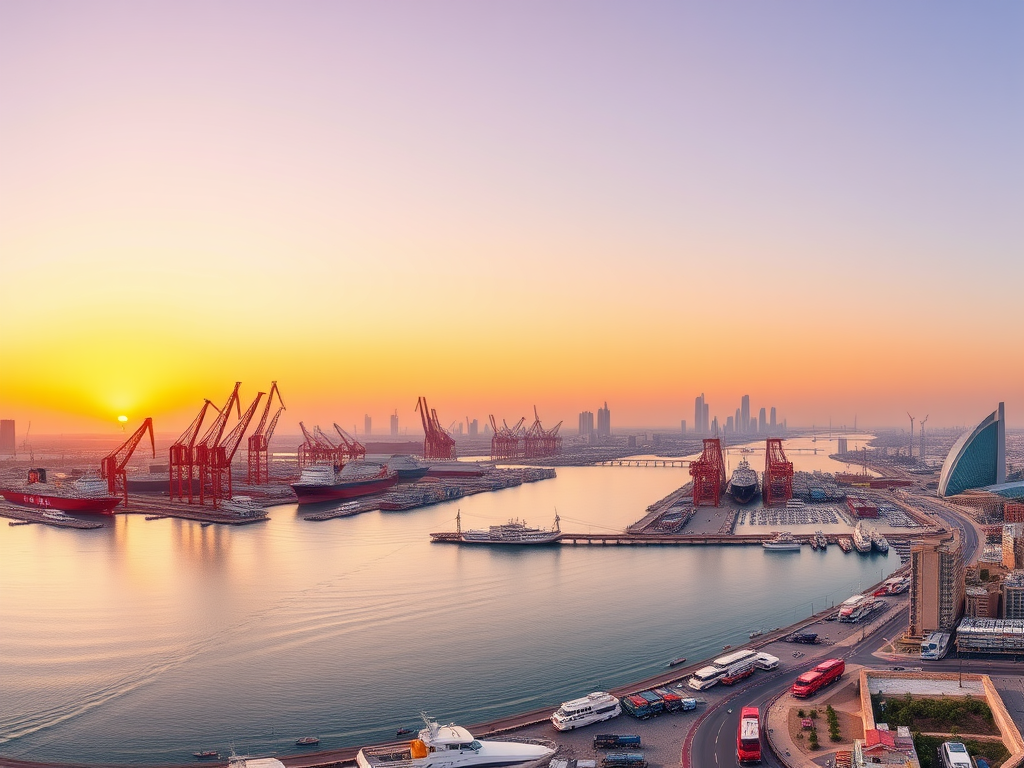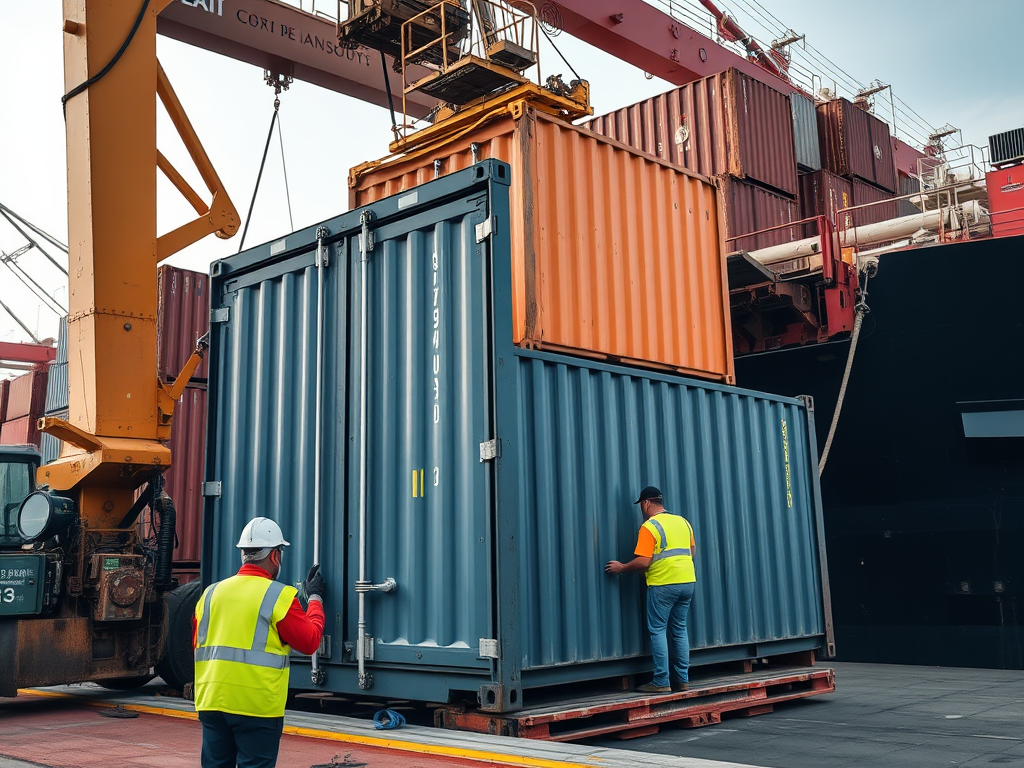Exploring Dubai’s Role in Global Maritime Trade
Dubai has emerged as a pivotal hub in global maritime trade, strategically positioned at the crossroads of East-West trade routes. Its state-of-the-art ports, advanced infrastructure, and favorable policies have made it a vital center for shipping, logistics, and maritime services. The city’s remarkable growth in this sector reflects not just its geographical advantages, but also its robust economic framework that supports maritime activities. This article delves deeper into Dubai’s significance in global maritime trade, the key players involved, and the challenges it faces along the way.
Strategic Geographical Location

Dubai’s geographical positioning provides it with unique advantages that are crucial for maritime trade. Located between major continents, it serves as a gateway connecting Asia, Europe, and Africa. This strategic location facilitates efficient shipping routes and enables quicker transit times, benefiting businesses worldwide. Here are some reasons why its location is advantageous:
- Proximity to Major Shipping Lanes: Dubai is situated near vital shipping lanes where container ships travel regularly, optimizing trade routes.
- Access to Thriving Markets: Its closeness to burgeoning economies in the Middle East and Asia makes it a significant trading partner for numerous countries.
- Natural Deepwater Ports: Dubai boasts some of the world’s leading ports like Jebel Ali, which can accommodate large vessels, enhancing cargo handling capabilities.
World-Class Infrastructure and Facilities

The development of world-class infrastructure is a cornerstone of Dubai’s maritime success. The city has invested heavily in upgrading its ports and logistics facilities to ensure they meet the demands of modern-day shipping. Key features include:
- Jebel Ali Port: This is one of the largest and busiest ports in the Middle East, often recognized for its advanced cargo handling and operational efficiencies.
- Dubai Maritime City: A dedicated maritime zone that fosters a marine-centric business environment, offering facilities for shipbuilding, repair, and maintenance.
- Dubai Logistics City: Located next to the airport, this massive complex optimizes the flow of goods and reduces transit times for maritime cargo.
Regulatory Framework and Incentives
Dubai’s proactive regulatory framework plays a significant role in boosting maritime trade. The government has established numerous laws and policies that support the maritime sector. These initiatives foster an environment conducive to business growth by offering various advantages such as:
- Tax-Free Zones: Certain areas allow 100% foreign ownership and offer exemptions from taxation, attracting international shipping companies.
- Streamlined Customs Procedures: Efficient customs protocols reduce delays and expedite the movement of goods across borders.
- Investment Incentives: The Dubai Investment Development Agency provides services to facilitate investments in maritime operations and logistics.
The maritime industry in Dubai comprises a diverse range of players that contribute to its ongoing success. Major stakeholders include:
- Shipping Companies: Global shipping lines have established offices in Dubai, facilitating a significant amount of cargo traffic.
- Logistics Providers: Numerous logistics firms provide warehousing, transportation, and supply chain management solutions tailored for maritime trade.
- Government Authorities: Entities like the Dubai Ports Authority ensure that ports operate efficiently and in compliance with international standards.
- Trade Associations: Organizations such as the Dubai Chamber of Commerce promote maritime commerce and offer support to local businesses.
Challenges and Future Prospects
Despite its strengths, Dubai’s maritime trade sector faces challenges that could influence future growth. Key issues include:
- Environmental Regulations: Increasing scrutiny on the environmental impact of shipping could necessitate investments in cleaner technologies.
- Global Economic Fluctuations: Economic volatility can affect trade volumes and shipping costs, impacting maritime operations in Dubai.
- Technological Advancement: Staying ahead in adopting and integrating new technologies like automation and digitalization can be challenging for existing players.
However, with Dubai’s commitment to innovation and sustainable practices, the future prospects for its maritime trade sector look promising. Continued investments in infrastructure, diversification of services, and robust international relations will likely solidify Dubai’s role as a leading hub in global maritime trade.
Conclusion
In conclusion, Dubai’s strategic location, exceptional infrastructure, supportive regulatory framework, and robust ecosystem of stakeholders position it as a powerhouse in global maritime trade. While challenges exist, the commitment to innovation and investment in sustainable practices herald a promising future for this vibrant sector. As global trade continues to evolve, Dubai is set to remain at the forefront, managing the complexities and opportunities within the maritime landscape.
Frequently Asked Questions
1. What makes Dubai a central hub for maritime trade?
Dubai’s central location between major continents, along with its advanced infrastructure and strategic policies, makes it an ideal hub for maritime trade.
2. How does Jebel Ali port contribute to Dubai’s maritime success?
Jebel Ali port is one of the largest and most advanced ports globally, allowing efficient handling of container traffic and attracting global shipping companies.
3. What regulations support maritime businesses in Dubai?
Dubai offers tax-free zones, streamlined customs procedures, and various investment incentives that support the growth of maritime businesses.
4. What challenges does Dubai face in the maritime sector?
Challenges include environmental regulations, economic fluctuations, and the need for technological advancements within the sector.
5. What is the future outlook for maritime trade in Dubai?
The future of maritime trade in Dubai looks promising due to continued investments in infrastructure and a focus on sustainability and innovation.


